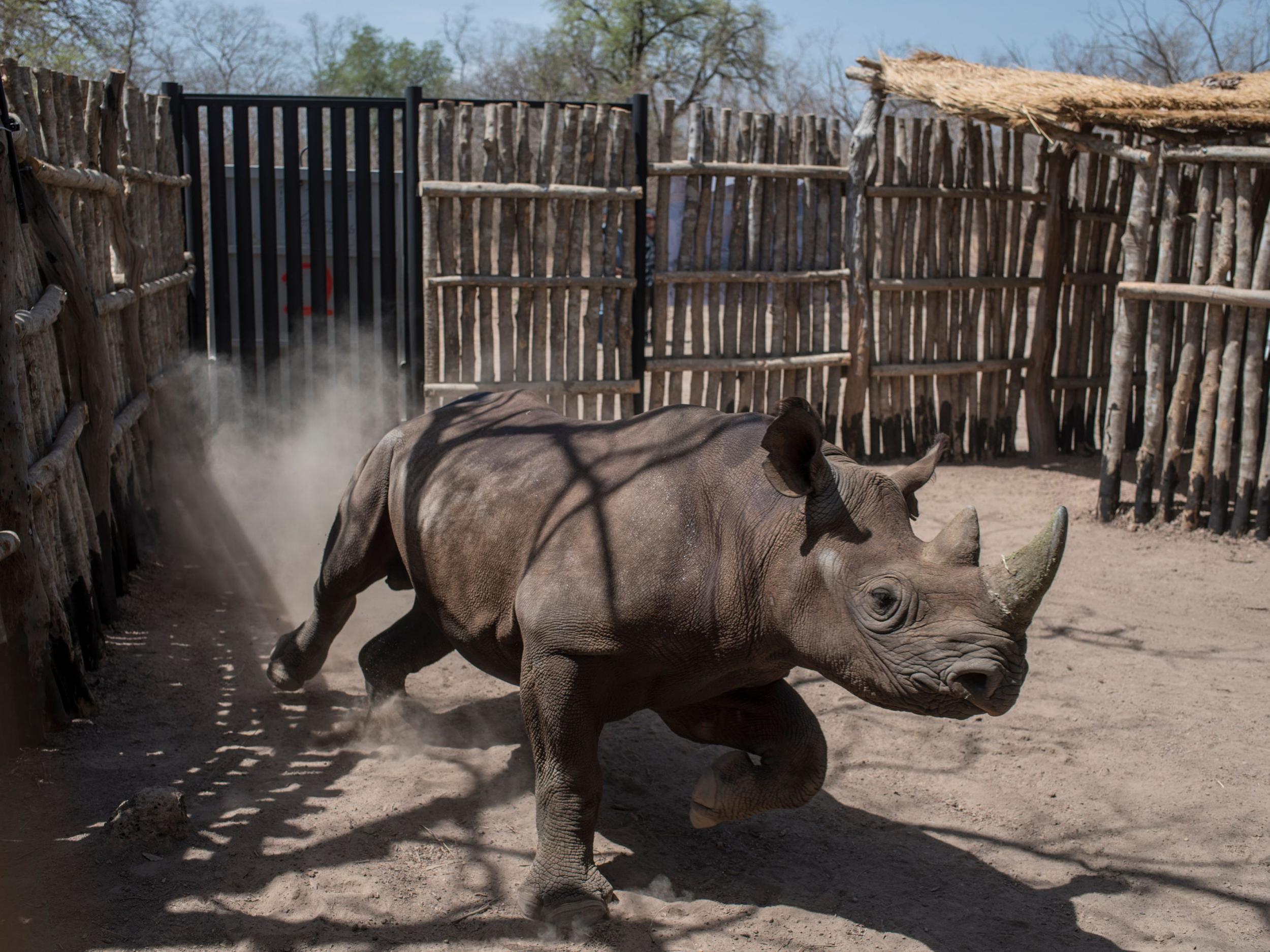Black rhinos return to Chad 50 years after poaching wiped them out
Conservationists hope expansion of threatened species' range will help save them from extinction

Your support helps us to tell the story
From reproductive rights to climate change to Big Tech, The Independent is on the ground when the story is developing. Whether it's investigating the financials of Elon Musk's pro-Trump PAC or producing our latest documentary, 'The A Word', which shines a light on the American women fighting for reproductive rights, we know how important it is to parse out the facts from the messaging.
At such a critical moment in US history, we need reporters on the ground. Your donation allows us to keep sending journalists to speak to both sides of the story.
The Independent is trusted by Americans across the entire political spectrum. And unlike many other quality news outlets, we choose not to lock Americans out of our reporting and analysis with paywalls. We believe quality journalism should be available to everyone, paid for by those who can afford it.
Your support makes all the difference.Black rhinos have been reintroduced to Chad 50 years after they were wiped out there entirely by poaching.
Six of the horned mammals were transported safely to the central African nation’s Zakouma National Park, having been flown 3,000 miles from South Africa.
The project was the result of an unprecedented collaborative effort by the governments of the two African countries, as well as South African National Parks and the international NGO African Parks.
After two years of intensive preparation for their arrival, the rhinos were introduced to their new home on Friday.
For the time being, they will be kept in specially constructed enclosures for a period of acclimatisation before being released into the park.
“We are resolved to create a secure and prosperous future for wildlife and people, so that generations of Chadians can experience the benefits of healthy and intact natural landscapes,” said Chad’s ambassador to South Africa, Sagour Youssouf Mahamat Itno.
“It is a mark of the strength of our partnership with African Parks and the transformation of Zakouma in to a secure sanctuary that we are now able to bring rhinos back to Chad where they will receive enduring protection.”
“Their reintroduction signifies an important advancement in the restoration of the park, furthering its potential as a conservation area to contribute through tourism to local economies and social development”.
The historical range of the black rhino included most of southern and eastern Africa, but today it is confined exclusively to protected nature reserves.
Successful reintroductions have already taken place in other African nations including Malawi and Botswana, and African Parks previously led a reintroduction of the species in Rwanda. Chad adds another nation to its range, and conservationists hope this will aid their chances for long-term survival.
African Parks took over management of Zakouma National Park in 2010, and the organisation has worked with the national government to turn it into a sanctuary in which the animals will be safe.
This has been achieved through a combination of law enforcement and community action programmes.
“The rhinoceros has survived on this planet for millennia, but with fewer than 25,000 remaining due to the insatiable demand for their horns, they are more affiliated with extinction than survival,” said Peter Fearnhead, CEO of African Parks.
Mr Fearnhead noted that “all too often, headlines on rhinos are about their demise as they teeter on the brink of extinction”.
In March, the world mourned the loss of Sudan – the last surviving northern white rhino – which has likely spelled the end of that particular subspecies.
Only around 5,000 of the remaining rhinos in Africa are black rhinos, and the majority live in South Africa.
Though poaching will still be a threat for Chad’s new rhino population, a dedicated rhino ranger unit should help protect them and enable them to thrive.
“Through our partnership with the government of Chad we have been able to restore security to Zakouma, creating an opportunity to re-establish a Central African population of the species in a secure and functioning park,” said Mr Fearnhead.
Join our commenting forum
Join thought-provoking conversations, follow other Independent readers and see their replies
Comments